“To follow in God’s footsteps with the children”
 Pilgrimage Organizer, Speech Therapist, and the Mother of a Big, Second FamilyTalking about family traditions, their work and hobbies, these women have sincerely shared with readers what helps them overcome difficulties, what joy they feel when they observe the good fruits of their labors, and how happy they are in their service.
Pilgrimage Organizer, Speech Therapist, and the Mother of a Big, Second FamilyTalking about family traditions, their work and hobbies, these women have sincerely shared with readers what helps them overcome difficulties, what joy they feel when they observe the good fruits of their labors, and how happy they are in their service.
“>Part 1. Pilgrimage Organizer, Speech Therapist, and the Mother of a Big, Second Family
 Olga Koikova introduces children to the art of bell-ringing
Olga Koikova introduces children to the art of bell-ringing
Olga Koikova, teacher of the Rodnik Home for Children with Learning Difficulties in Murygino, wife of the rector of the Church of the Pochaev Icon of the Mother of God in the village of Girsovo:
 Olga Koikova For thirty-seven years I have been working at the Rodnik Boarding Home for Children with Learning Difficulties in Murygino as a teacher, carrying on the cause of my parents, both of whom used to work here as well. In 2012, it occurred to me to organize a house church at the Home, and with the blessing of Vladyka Mark the building of the church commenced. It is small, only about 390 square feet, but this church has everything it should have: a sanctuary, a place where children from the Home can have confession, and a kliros; there are candle holders where you can put candles for the health and the repose of your loved ones.
Olga Koikova For thirty-seven years I have been working at the Rodnik Boarding Home for Children with Learning Difficulties in Murygino as a teacher, carrying on the cause of my parents, both of whom used to work here as well. In 2012, it occurred to me to organize a house church at the Home, and with the blessing of Vladyka Mark the building of the church commenced. It is small, only about 390 square feet, but this church has everything it should have: a sanctuary, a place where children from the Home can have confession, and a kliros; there are candle holders where you can put candles for the health and the repose of your loved ones.
Children from the Rodnik Home gladly come to services. The Divine Liturgy is celebrated once a month, and twice a month we organize prayer services. Batiushka comes to us to perform services. During the Paschal season there was a cross procession around the Home—it is a special joy for us and the children. We are so grateful to the priests who cooperate with us! After the Divine Liturgy, batiushka and I go to give communion to all the bedridden children and sprinkle them with holy water. It has been noticed that children become calmer after this. Sometimes as you walk along the corridor you hear children make noise and shout, but once batiushka gives the Body and Blood of Christ to the children, silence begins to reign there and the children calm down.
Our house church has existed for fourteen years now. Fr. Valery Goshev helped us and started organizing everything. Many good, kind-hearted priests pastored our Home. After him came Fr. Nikolai Repin, who miraculously found an approach to children. It was the very difficult time of the pandemic. He always called us, wondered how we were doing, and brought us prosphora and holy water when we were in quarantine. Many thanks to him for such support. Then Fr. Nikolai Veselov began to pastor us. Cheerful and good-natured, he found an approach to the children quickly, and they came to love him with all their hearts. Today we are pastored by Priest Alexander Popov.
 Olga Koikova with her husband, Fr. Vladimir
Olga Koikova with her husband, Fr. Vladimir
The children followed in the footsteps of God very cautiously. At first they took very timid steps. We just taught them the basics of Orthodoxy; the staff tried to show them by their example how to venerate icons, how to make the sign of the cross, and how to pray. But at first it seemed to us that the children couldn’t remember anything, and we even complained to the priests who visited the Home that we were unable to do anything. But they humbly said: “Keep sowing the seeds, and someday they will grow.”
Pilgrimage trips have greatly helped us to follow in the footsteps of God. For children who live in the Home in isolation it is a great joy to escape somewhere. The “From Vyatka” pilgrimage service took us under its wing. Nadezhda Shapoval developed itineraries that were understandable and interesting for our children with special needs. Pilgrims often confessed to us that at first, when Nadezhda informed them that children with special needs would join them, they were scared and even were about to cancel, fearing that the children would be very noisy. But everything turned out the other way around: the children were very obedient, they always stood calmly and upright at services and prayed sincerely with all their hearts. And, of course, the children in the Rodnik Home look forward to their next meetings with the Lord; they always behave perfectly at services and take Holy Communion. The older children help at the Liturgy in our house church. They have already grown up, so they help us with the younger children: they help them stand in line for Communion, give them some prosphora and some wine mixed with warm water right after Communion and teach them how to eat prosphora carefully so as not to drop any crumbs.
 Olga Koikova with children from the Rodnik Home Here is one of my observations. For several years the children just stood at the service, listened to church hymns, watched and were silent. But quite recently we had a miracle: they started singing along with the choir! Now we have many mute children; we communicate with them using sign language. And once, they began to mumble! The choir director and I exchanged glances. We usually sang, while they just listened to us. And suddenly they started singing “Our Father”, then the Creed, and then quickly began to join in the singing throughout the service. The priest blessed the participation of these children in services. The choir director, Elena Grigorievna Mamayeva from the Church of the Exaltation of the Holy Cross in the village of Murygino, shows them with her hands where to sing “Lord have mercy” and where other words are needed. And on their own level, they have already begun to accompany almost the entire service with their “mute” singing: sometimes they help themselves with their hands as they are unable to pronounce words distinctly, but we humbly admire them and rejoice that they walk towards the Lord their own way.
Olga Koikova with children from the Rodnik Home Here is one of my observations. For several years the children just stood at the service, listened to church hymns, watched and were silent. But quite recently we had a miracle: they started singing along with the choir! Now we have many mute children; we communicate with them using sign language. And once, they began to mumble! The choir director and I exchanged glances. We usually sang, while they just listened to us. And suddenly they started singing “Our Father”, then the Creed, and then quickly began to join in the singing throughout the service. The priest blessed the participation of these children in services. The choir director, Elena Grigorievna Mamayeva from the Church of the Exaltation of the Holy Cross in the village of Murygino, shows them with her hands where to sing “Lord have mercy” and where other words are needed. And on their own level, they have already begun to accompany almost the entire service with their “mute” singing: sometimes they help themselves with their hands as they are unable to pronounce words distinctly, but we humbly admire them and rejoice that they walk towards the Lord their own way.
The sacrament of Baptism in the Rodnik Home is always a special event. There was a point when we realized that some unbaptized children had been admitted to it, and batiushka baptized them. We would bring a font, appoint a day, and our friends from pilgrimage trips and Orthodox youth would come to us. These were touching, unforgettable moments. There were also moments when the older children became the godparents of the younger ones, and now they take them to Communion, rejoice for them, and help us take them on pilgrimage trips. That is, the older children guide the younger ones in their steps to God.
The children like to do crafts for the major feasts and draw churches. And if they go on a trip, they will definitely reflect their impressions in drawings later. They take part in the annual “My Dream Church” competition and win prizes.
Not long ago, my husband was ordained priest. Of course, it is a great responsibility. Becoming a priest’s wife was a serious step for me. I am supposed to help batiushka and the church parishioners. They ask a lot of questions, and sometimes I don’t know how to answer them and say that I will be able to give an answer at the next service. Then I prepare and answer these questions. Our parishioners like to gather for spiritual conversations. Meanwhile, from the time I became a priest’s wife I have had inner humility, more patience, and peace of mind.
 The parish of the Church of the Pochaev Icon of the Mother of God in the village of Girsovo My husband, Father Vladimir Koikov, was appointed rector of the Church of the
The parish of the Church of the Pochaev Icon of the Mother of God in the village of Girsovo My husband, Father Vladimir Koikov, was appointed rector of the Church of the  The Pochaev Icon of the Mother of GodThe Pochaev Icon of the Mother of God is among the most venerable sacred shrines of the Russian Church.
The Pochaev Icon of the Mother of GodThe Pochaev Icon of the Mother of God is among the most venerable sacred shrines of the Russian Church.
“>Pochaev Icon of the Mother of God in the village of Girsovo. There are many things to do in the village church—you need to help in the church shop, read the Hours, and in the absence of a bell-ringer you fill in for him and provide the service with choir singing. The church is being built, and we are restoring the bell-tower on our own. Our parish is small, but very united; we decorate the church for the feasts, build Nativity scenes from snow, and clean up the area—we do everything together. And today the parish is already discussing meeting the Velikoretsky cross procession. How gratifying it is that people have joined the church, united, and are following in the footsteps of God together.
This year on the feast of the holy Myrrh-Bearing Women, after the Divine Liturgy Fr. Vladimir Koikov greeted the Orthodox women in the parish, gave them presents, wished them spiritual joy, prosperity and good health.
We also have this interesting aspect in our family—our children (daughter and son) support us. They know that the children in the Rodnik Home call me “mother”, and we take some of them to stay with us for a week in the summer.
I remember many stories about children with special needs from the Rodnik Home, how earnestly they prayed that their mothers who had not visited them for years would come to them, how icons started “weeping” after their prayers, how the older children prayed for their own homes… And everything was sorted out! Glory to God for all things.
“The main thing is to rejoice with those who rejoice and weep with those who weep”
Ekaterina Molokanova, administrator of St. Seraphim’s Cathedral, wife of the cleric of the Church of the Great-Martyr Panteleimon in Kirov, Priest Sergei Molokanov:
 Ekaterina and Priest Sergei Molokanov at St. Seraphim’s Church I have been the administrator and shop assistant at the Cathedral of St. Seraphim of Sarov as an obedience for three years now.
Ekaterina and Priest Sergei Molokanov at St. Seraphim’s Church I have been the administrator and shop assistant at the Cathedral of St. Seraphim of Sarov as an obedience for three years now.
It is a great joy to labor in such a holy place as our church, to be part of such a wonder as St. Seraphim’s Cathedral. It still evokes the atmosphere of pre-revolutionary Russia and preserves it. And, of course, I want everyone who enters this church to feel this, and take a bit of its warmth away with them, returning to the fuss of everyday life. The task of everyone who meets a parishioner on the threshold of the church is to help him feel this warmth in his heart.
Unfortunately this does not happen everywhere, and sometimes we hear sad stories from people who met indifferent or even unfriendly church workers in another church, who frightened them away from church with their rude words.
It was the same with me. I met a cantankerous church worker on my way to God whom I now remember with a smile. But then, after listening to my complaints, my father-confessor said: “You can’t put a kind and sensitive person at every candlestand. Try to work there yourself.”
These words became a “seed” that was destined to grow only seven years later. But I regret a single time that I labored in the house of God. As one elder said, if people could see with their spiritual eyes what abundant grace is poured out during the Liturgy, they would collect the dust from the floor and wash themselves with it.
I want to ask all of us: If you see someone enter a church without a headscarf, or light a candle from an icon lamp, or read prayers on a smartphone, don’t reproach them! People are coming to God—we mustn’t stop them. Visitors often ask church workers to show them one or another icon with the words, “Take me to the Mother of God.” And we do it. So, let’s walk together!!!
But any work that is pleasing to God is accompanied by difficulties and temptations. Moreover, there are plenty of them in working with people. It would seem, I gave a candle to a visitor, submitted intercession lists, and the job is done. But this is only at first glance. People come to church in the hope that they will be listened to, guided and treated kindly. All of them!
Therefore, the most important thing in our service is to rejoice with those who rejoice and weep with those who weep, and all this on the same day. And I would place emphasis on the ability to listen to a person without judging him even with a glance or gesture. People are doubly grateful for this.
 Ekaterina Molokanova and her husband Priest Sergei with their children during a horse ride Of course, we send people with purely spiritual questions to priests, but it often happens that it is easier for a person to ask a church worker about something, especially if he sees that she is friendly. Therefore, you have to be a psychologist, a missionary, a catechist, a historian, and even a guide. Last week, for example, an icon of the Apostle John the Theologian in our church reminded a visitor of the painting, “St. Luke”, by the Flemish painter Franz Hals, and it was vital for her to discuss with me all the differences between these two canvases. It appears that it’s good to be a little bit of an art critic. It is necessary to know Orthodox literature well in order to recommend books to parishioners for reading. At the same time, new prospects for inner development appear: there is room to grow, to explore the world of the Orthodox faith, Christian culture and literature in order to share discoveries with people around us—those whom we meet in the church of God.
Ekaterina Molokanova and her husband Priest Sergei with their children during a horse ride Of course, we send people with purely spiritual questions to priests, but it often happens that it is easier for a person to ask a church worker about something, especially if he sees that she is friendly. Therefore, you have to be a psychologist, a missionary, a catechist, a historian, and even a guide. Last week, for example, an icon of the Apostle John the Theologian in our church reminded a visitor of the painting, “St. Luke”, by the Flemish painter Franz Hals, and it was vital for her to discuss with me all the differences between these two canvases. It appears that it’s good to be a little bit of an art critic. It is necessary to know Orthodox literature well in order to recommend books to parishioners for reading. At the same time, new prospects for inner development appear: there is room to grow, to explore the world of the Orthodox faith, Christian culture and literature in order to share discoveries with people around us—those whom we meet in the church of God.
The  To the Velikaya River with St. NicholasThe feet are burning, the back is aching under the weight of the backpack, the sunglasses tinted grey from a heavy layer of dust (this year’s procession was held during an uncommonly dry and hot week), when, out of line, I am awash with joy: Lord, help me keep this prayerful mood, let it linger longer! Thank You, Lord!
To the Velikaya River with St. NicholasThe feet are burning, the back is aching under the weight of the backpack, the sunglasses tinted grey from a heavy layer of dust (this year’s procession was held during an uncommonly dry and hot week), when, out of line, I am awash with joy: Lord, help me keep this prayerful mood, let it linger longer! Thank You, Lord!
“>Velikoretsky cross procession is a special time for the entire Vyatka Metropolia and for our church. Indeed, at this time, the palette of interesting meetings shines with new colors. Communication with pilgrims is priceless! And we, in turn, want them to have kind memories of our St. Seraphim’s Cathedral. We help them find a pair of sneakers, a mug for the journey, or the way to the train station.
 Ekaterina with her daughter Elisaveta But moments of joy are rare and fleeting, while the sea of human tears that are shed in the church of God is bottomless. Today, of course, these are tears of the mothers and the wives of the fallen soldiers. Since the very beginning my husband, Fr. Sergei Molokanov, a cleric of the Church of the holy Great-Martyr Panteleimon in Kirov, and I have been compiling a list of fallen soldiers from the Kirov region for their prayerful commemoration. There are also several female parishioners in our St. Seraphim Church who, with the blessing of their father-confessors, pray for the killed soldiers.
Ekaterina with her daughter Elisaveta But moments of joy are rare and fleeting, while the sea of human tears that are shed in the church of God is bottomless. Today, of course, these are tears of the mothers and the wives of the fallen soldiers. Since the very beginning my husband, Fr. Sergei Molokanov, a cleric of the Church of the holy Great-Martyr Panteleimon in Kirov, and I have been compiling a list of fallen soldiers from the Kirov region for their prayerful commemoration. There are also several female parishioners in our St. Seraphim Church who, with the blessing of their father-confessors, pray for the killed soldiers.
Our family keeps in touch with the mothers of some soldiers—together we visit the graves of their heroic sons who laid down their lives for the sake of their friends. Their mothers are true myrrh-bearing women who, like our Mother Theotokos, sacrificed what they held dearest—their sons—for us.
And, of course we, the parish church workers, sometimes also need support. And we have someone to turn to. The church’s head priest, Archpriest Sergei Sizikhin, is like a spiritual rock, our support. Batiushka always cheers us up with his kind pastoral words.
He was touched by the fact that we in church are not mere church workers who “provide services”, but also part of the parish, brothers and sisters who had once decided to devote our lives to serving and helping others here in church.
Come to the church to pray, participate in the sacraments of the Church, light a candle or just pray to God quietly. And may you meet only good church workers!
“After God, family should come first in our lives”
Xenia Filimonova, a rheumatologist, Associate Professor of the Department of Internal Diseases of Kirov State Medical University, a member of the Union of Writers of Russia, wife of the rector of the Church of the Archangel Michael of the Raduzhny neighborhood of Kirov, Priest Oleg Filimonov:
I am the mother of four children, but I also work. To be honest, I never believed that I should stay at home. After all, if God has given me talents, I must use them. I always studied well at school and chose my profession thanks to my mother. She is a teacher with fifty years of experience, and she used to tell my me and brothers: “Don’t become teachers—it’s very difficult and responsible.” Being a doctor is a wonderful profession. But in the end both my older brother (who had studied at the Polytechnic Institute) and I (after graduating from the medical academy) received Ph.Ds and stayed at our alma mater as teachers. Of course, I did not give up my medical work either. Our Department of Internal Diseases, of which I am an associate professor, is located at the Kirov Railway hospital, where I recieve patients as a rheumatologist.
I like my job because I feel that I can give something to students based on my own experience and knowledge. I try to instill in them the desire to be good doctors. Because now half of the success in treating patients is mere attention to them, since in our age of universal digitalization doctors often simply don’t have time to look at his patient—the main thing is to enter data into a computer. I don’t speak directly about the faith. If asked, I’ll answer, but I think I should set a good example by my behavior.
One of my main hobbies is writing poems and songs. I’ve written poetry since I was eight, and I started composing songs at the age of fifteen when I learned to play the guitar. Since 2017 I have been a member of the Union of Writers of Russia. In total, five books of my poems have been published, and an audiobook with poems and songs have been produced in the Living Voice project.
I am often invited to meetings in libraries with schoolchildren and adult readers, where I try to share the joy of life, faith, the beauty of my native land, love for children and the world. In my works I speak about the Velikoretsky cross procession and my favorite feasts: Christmas, Theophany and Pascha. Lately I have been writing melodies based on poems by Vyatka authors. I really like meeting good people in the provinces.
But let’s return to the most important thing—to the family. Even in my school years I would go to Sunday school, which was led by Fr. Vladimir Trukhin, and I always prayed to God to send me a good Orthodox husband. While studying in Kirov, I attended the “Philokalia” Orthodox youth club in Novovyatsk, where I met my soulmate. We dated for three years and were married in 2004. Now I can say that God sent me the life partner that I need. Priest Oleg Filimonov is my complete opposite; he does not like big events and performances. But he supports me in this, and it’s not a burden for him to sit with our children and cook dinner, for example. Now I help my husband (as the editor-in-chief of the Vyatka Diocesan Bulletin) by proofreading the newspaper’s materials. Another “obedience” is writing small congratulatory texts for Christmas and Pascha for the “From Vyatka” pilgrimage service, postcards with which circulate throughout monasteries and parishes of Russia.
Not long ago I realized that after God,  The Meaning of Family ValuesThe holy fathers call marriage a remainder of paradise on earth.
The Meaning of Family ValuesThe holy fathers call marriage a remainder of paradise on earth.
“>family should come first in our lives, and only then work, hobbies, traveling and so on. No work, no colleagues, or audience will be with you always. When you realize this, everything falls into place; only your children, husband, and relatives will remain with you. Of course, there are problems in child-raising and in family life, but prayer, patience and love always help us!

 Pilgrimage Organizer, Speech Therapist, and the Mother of a Big, Second FamilyTalking about family traditions, their work and hobbies, these women have sincerely shared with readers what helps them overcome difficulties, what joy they feel when they observe the good fruits of their labors, and how happy they are in their service.
Pilgrimage Organizer, Speech Therapist, and the Mother of a Big, Second FamilyTalking about family traditions, their work and hobbies, these women have sincerely shared with readers what helps them overcome difficulties, what joy they feel when they observe the good fruits of their labors, and how happy they are in their service.




 The Pochaev Icon of the Mother of GodThe Pochaev Icon of the Mother of God is among the most venerable sacred shrines of the Russian Church.
The Pochaev Icon of the Mother of GodThe Pochaev Icon of the Mother of God is among the most venerable sacred shrines of the Russian Church.

 To the Velikaya River with St. NicholasThe feet are burning, the back is aching under the weight of the backpack, the sunglasses tinted grey from a heavy layer of dust (this year’s procession was held during an uncommonly dry and hot week), when, out of line, I am awash with joy: Lord, help me keep this prayerful mood, let it linger longer! Thank You, Lord!
To the Velikaya River with St. NicholasThe feet are burning, the back is aching under the weight of the backpack, the sunglasses tinted grey from a heavy layer of dust (this year’s procession was held during an uncommonly dry and hot week), when, out of line, I am awash with joy: Lord, help me keep this prayerful mood, let it linger longer! Thank You, Lord!
 The Meaning of Family ValuesThe holy fathers call marriage a remainder of paradise on earth.
The Meaning of Family ValuesThe holy fathers call marriage a remainder of paradise on earth.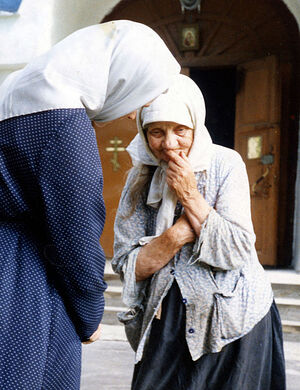
 St. Seraphim of VyritsaMeanwhile, Vasily Nikolayevich Muravyov (St. Seraphim of Vyritsa’s secular name), a well-known fur trading merchant from St. Petersburg, did something unfathomable to ordinary human reasoning: He shut down his business, offered generous severance pay to all of his employees, and distributed the bulk of his capital to the needs of various monasteries.
St. Seraphim of VyritsaMeanwhile, Vasily Nikolayevich Muravyov (St. Seraphim of Vyritsa’s secular name), a well-known fur trading merchant from St. Petersburg, did something unfathomable to ordinary human reasoning: He shut down his business, offered generous severance pay to all of his employees, and distributed the bulk of his capital to the needs of various monasteries.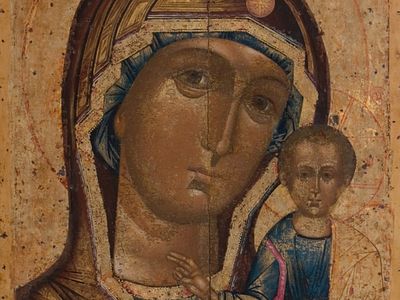 The Complicated History of the Kazan Icon of the Mother of GodThe history of the Kazan icon began in the sixteenth century. Yet people find the circumstances and place of its appearance unusual and surprising even to this day.
The Complicated History of the Kazan Icon of the Mother of GodThe history of the Kazan icon began in the sixteenth century. Yet people find the circumstances and place of its appearance unusual and surprising even to this day.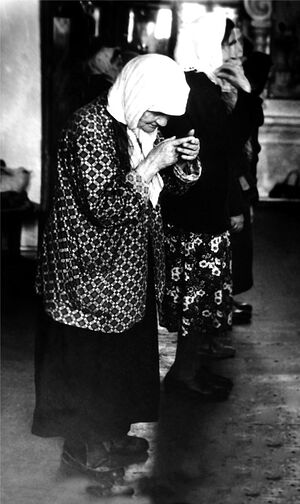
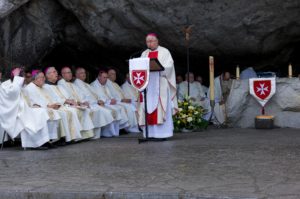
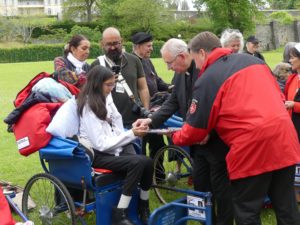

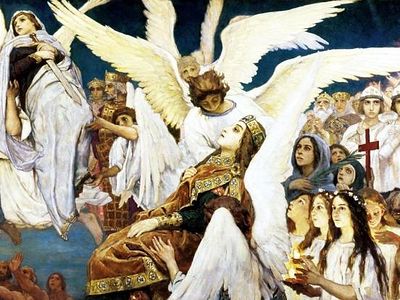 Perspectives on DeathSo, I was thinking: why don’t we all write a summary of the life we lived at some point? I bet without a doubt it’ll scare us; some will break out into a cold sweat, and from this, good life changes will be born. Mortal memory, after all, is so… creative.
Perspectives on DeathSo, I was thinking: why don’t we all write a summary of the life we lived at some point? I bet without a doubt it’ll scare us; some will break out into a cold sweat, and from this, good life changes will be born. Mortal memory, after all, is so… creative.
